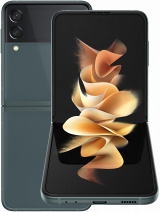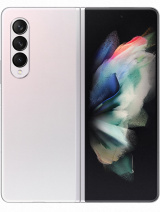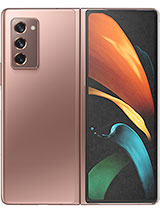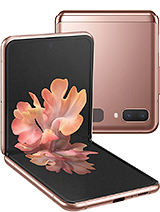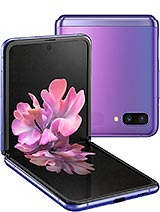Galaxy Z Fold 3 and Z Flip 3 hands-on By The Verge
- So it's August, and today is the latest Samsung Unpacked. Normally that would mean it's time for a new Galaxy Note, but in Samsung's own words, not this time around. Instead, the focus this Summer is what Samsung sees as the future of phones, Foldables. (upbeat music) These are the new Galaxy Z Fold 3 and the Z Flip 3. And from everything we've seen so far, they're the most impressive and refined foldables that the company has produced yet. They look better than last year's phones.
Have all the hardware upgrades you'd expect. And crucially, Samsung is more confident in their durability than ever before. (upbeat music) Let's start with the Z Fold 3. Since it carries over an important part of the Galaxy Note's legacy, the S Pen. Yes.
You can now use a stylus on that giant screen for a drawing, taking notes, touching up your photos, editing PDFs, annotating screenshots, and everything else that people use the S Pen for. Samsung made a special fold edition of the S Pen that you can use for the basics. But the price of your S Pen Pro will also work if you want extra features like air gestures and some Bluetooth tricks. Both are sold separately from the Fold 3. But hang on a minute.
See if you followed along with Samsung's Foldables you might know that their screens are a little, shall we say delicate. A fingernail could leave a permanent mark on the previous Fold screen. So, how are you supposed to use the S Pen without leaving marks all over the place? Samsung claims the protective film covering, the ultra thin glasses, now 80% more durable. So hopefully that'll be enough to avoid problems. The Fold Edition S Pen also has an auto retracting tip that'll pull back if you're using too much force when pressing the stylus on the Fold screen.
Now I spent some time with the Z Fold 3 today and pressed down pretty hard with the S Pen and didn't see any marks, but stay tuned for our full review to see how the screen really pans out. So the S Pen it works and it does S Pen things. Now let's get to the rest of the Fold 3. And it makes sense to start with the outside screen this time. It's the same 6.2 inch size as the Fold 2s, but now you get a buttery smooth 120 Hertz panel with the same adapter refresh rate as the main folding display. Open the fold up.
And one thing that you might not notice right away is the selfie camera, but it's there if you look close. It's now under the screen itself. This isn't the first time we've seen this trick. And some earlier under display cameras have been truly awful. But Samsung insists this camera will be perfectly adequate for Zoom and other video calls.
It's meant to make the Fold 3's 7.6 inch screen feel undisturbed. It's one of those things that you might forget it's there when you're using the phone day to day, but it's definitely noticeable when you go to look for it. Keep in mind, you've got four other cameras to pick from, if you don't love the quality of the one under the screen. The Fold 3 looks similar to the Fold 2. But Samsung says it's more resilient than before despite being lighter and a tad thinner.
It and the Flip 3 are now IPX8 water resistant. So you can submerge them in water and they'll survive. There's still no dust protection though, so you're gonna wanna steer clear of the beach. Samsung's also using Gorilla Glass Victus on the outside displays and stronger metal for the hinges. Hopefully, all of this, combined with more durable screen protectors will mean fewer Samsung Foldables just randomly breaking down from daily usage, which was still a problem for some customers from last year's phones.
This year, Samsung is adding new features to help you get the most out of the Fold 3's giant screen. You can now pin the edge panel to one of the sides, like a dock. And a new labs feature, it gives you control over how apps look when you're multitasking, even for apps that aren't designed for the Fold 3. But I've got to tell you, for as much as the Fold 3 sounds like a productivity powerhouse, I'm more excited about the Flip 3 this year. Maybe it's this awesome cream color that reminds me of vintage gadgets from the 70s.
Or maybe it's that the outer screen is finally a usable size. But there's just an It factor about this phone. The main 6.7 inch screen now has an adaptive 120 Hertz refresh rate. And the cover screen has grown to 1.9 inches. That sounds tiny.
But it's four times larger and way more practical than the teeny-tiny screen from the original Flip. On this one you can add various widgets. Or control your music. Or access Android's Quick Settings. Or a Samsung Pay or notifications.
All without ever having to flip the phone open. Samsung also made a few really stylish cases for the Flip 3 that come in fun colors. So in my hands on time with the Flip 3 house, really impressed. It feels sturdy. The outside screen is very responsive.
The inside screen, still lets you split apps. So you can watch a video on the top and scroll through comments on the bottom. Or control Spotify. But it is a foldable phone and you can still see that crease in the middle. When you're doing things it's not really noticeable, but when the screen is black, there's crease.
Now, when it comes to their specs, both phones have Snapdragon 888 processors, full 5G support and Dolby Atmos audio. The Fold 3 comes with either 256 or 512 GB of storage and 12 GB of Ram. And the Flip 3 has 128 or 256 GB of storage with 8 GB of Ram. As for the the cameras, they're pretty similar to last year, which means there should be pretty good. But stay tuned for our full review to see how they stack up against the Galaxy S21 Ultra.
They go up for a pre-order today. With the Galaxy Z Fold is starting at $1799 and the Flip 3 dropping to $999. Both phones will be available on August 27th. Stay tuned for our full reviews to see whether the third time is the charm for Samsung's Foldables line up. Hey, everybody thanks for watching.
Samsung also announced new Galaxy watches that are the first to run Wear OS 3, the new software that it co-engineered with Google. Checkout John Porter's impressions of those watches on the channel now.
Source : The Verge

